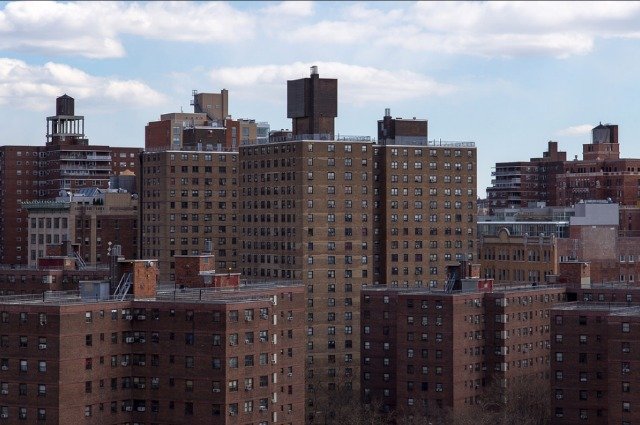NYCHA To Lose At Least $35 Million In Federal Funding In 2017
March 7, 2017, 11:15 a.m.
"The direction we're moving in is one where public housing is drastically different or doesn't exist."

New York City's cash-strapped public housing authority—the country's largest, with more than half a million residents—is facing its biggest cut in federal funding in five years, according to a report in the Wall Street Journal this week.
A spokeswoman for NYCHA confirmed a $35 million cut in funding, saying that NYCHA recently received a letter from HUD indicating as much. According to NYCHA, the loss is $27.7 million in operating funds, and 7.7 million in funding for the administration of the Section 8 voucher program.
This appears to be the first major cut in federal funding to hit New York City since President Donald Trump took office in January, according to NYCHA. The authority ended 2016 with a surplus of $21 million in operating funds—money that goes towards janitorial salaries, plumbing, electricity, mold and lead paint remediation, and other daily repairs. It is now at least $14 million in the red.
NYCHA sources told WSJ that up to $150 million in cuts is possible, though the authority could not immediately confirm this to Gothamist. NYCHA is already facing $17.1 billion in unmet capital needs—funding for roof repair, boilers and natural disaster repairs—thanks to a steady decline in federal funding in recent years.
"The direction we're moving in is one where public housing is drastically different or doesn't exist," NYCHA head Shola Olatoye told WSJ. "The progress we have made over the course of the last three years—it's not that it's at risk. It evaporates."
Stephanie Rudolph is a senior attorney with the Urban Justice Center who has been representing NYCHA tenants for the last five years. "As it stands, it often takes a lawsuit to bring attention to repair issues for our clients in public housing," she told Gothamist. "Even with litigation, NYCHA can take months or even years to perform repairs in a way that prevents the condition from reoccurring."
"The lack of repairs takes a particularly heavy toll on our elderly clients, those with disabilities, and families with children," she added.
According to NYCHA, turnaround times for basic repairs have recently fallen to an average of five days, exceeding a previously-set goal of seven days. This sort of improvement would be obliterated, a spokeswoman said.
Concern about federal funding for NYCHA has been mounting since December, when President Trump announced Ben Carson—a proponent of small government with no policy experience—as secretary of the Department of Housing and Urban Development (according to WSJ, these cuts appear to have been confirmed before Carson's appointment).
The authority is in the midst of selling off chunks of NYCHA-owned property: a controversial effort to shore up funds. Meanwhile, apartments are plagued with lead paint, darkened stairwells, and a dearth of cooking gas and air conditioning. Many NYCHA properties are located on the waterfront, and were severely damaged during Hurricane Sandy.
"And so it begins," said Comptroller Scott Stringer in a statement. "We all have long known that leadership in Washington seeks to shred the social safety net by slashing funding for those who need it most."
In recent months, Mayor de Blasio has said that NYC is staring down Trump with about $5 billion in reserves. According to the city, about $1 billion of the total is savings accumulated over the past four years. The remaining $4 billion comes from a retiree health benefits trust fund (which the Citizens Budget Commission argues should not be set aside for general use). In January, Mayor de Blasio said that NYC is "ready for all sorts of eventualities, whether in the larger economic reality, or whether it's something emanating from Washington."
The city's 2016 NYCHA investment plan of $242 million was an increase over the previous year's $210.5 million. De Blasio also recently announced a $1 billion investment for roof replacement over the next decade.
"It's a slippery slope," countered Doug Turetsky, a spokesman for the Independent Budget Office. "First there's $35 million here. Where's the next cut that there's going to be pressure to restore? And the more the city restores, the more it says, 'We don't need the federal money.' So you get yourself in a bind."
The Mayor's Office did not immediately responded to a request for comment; HUD declined to comment.